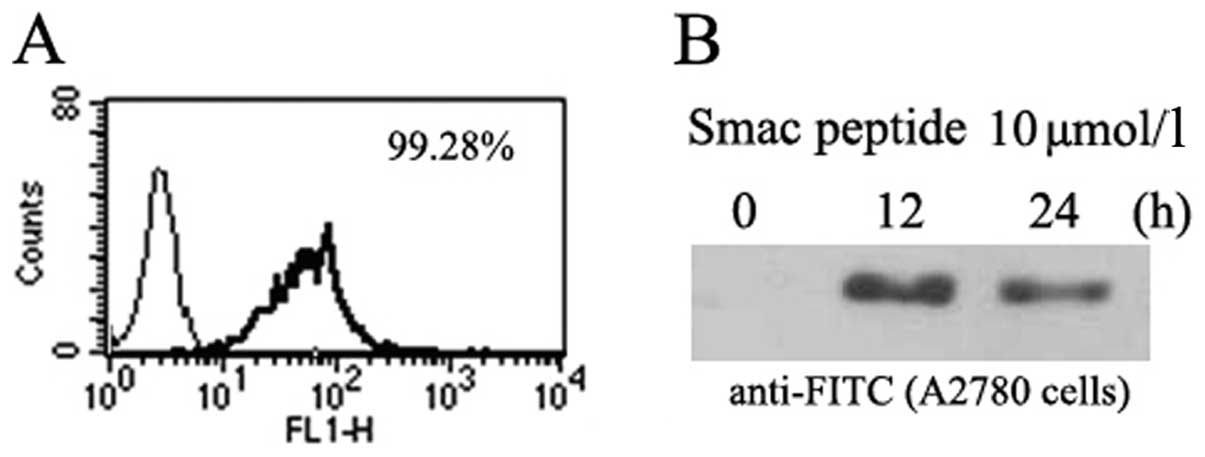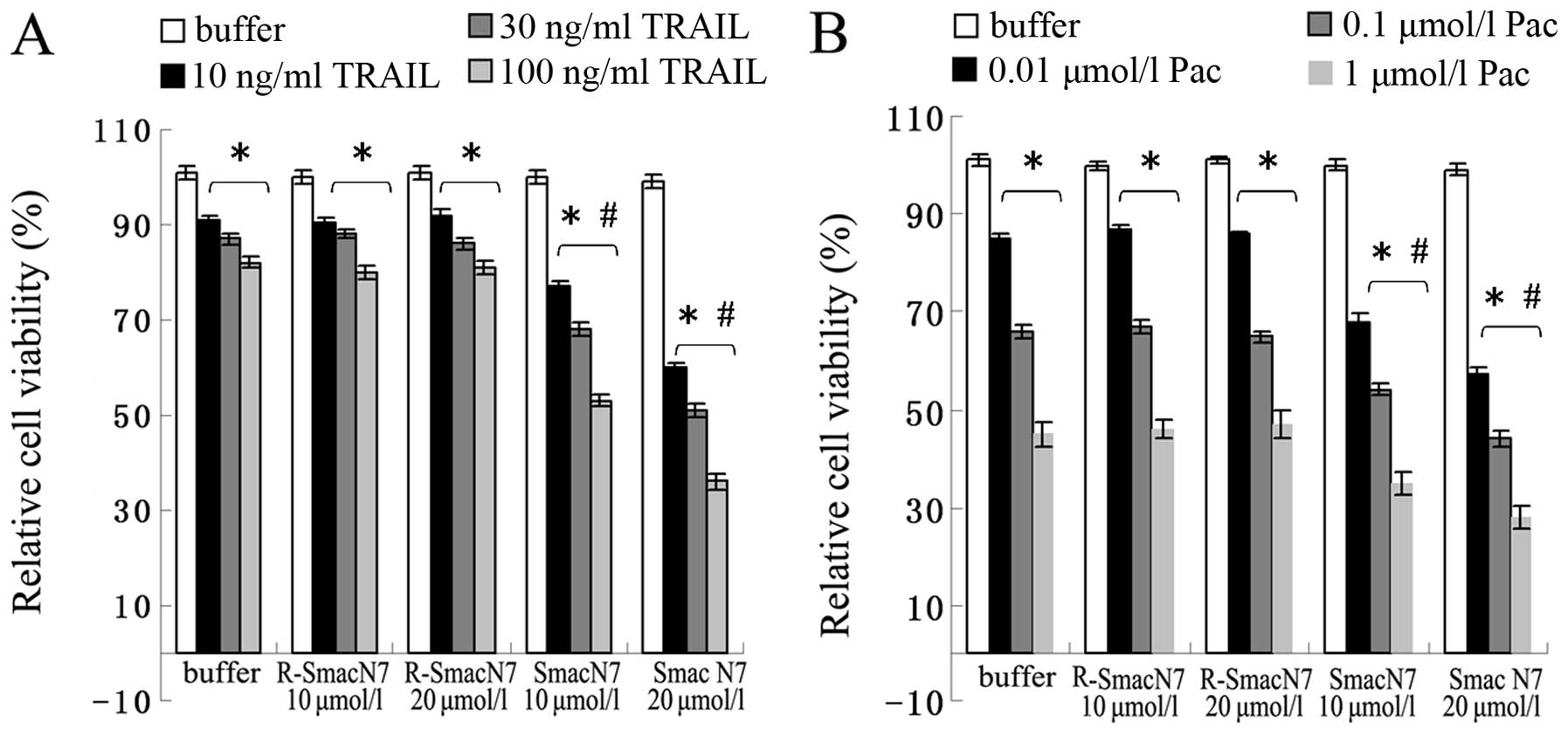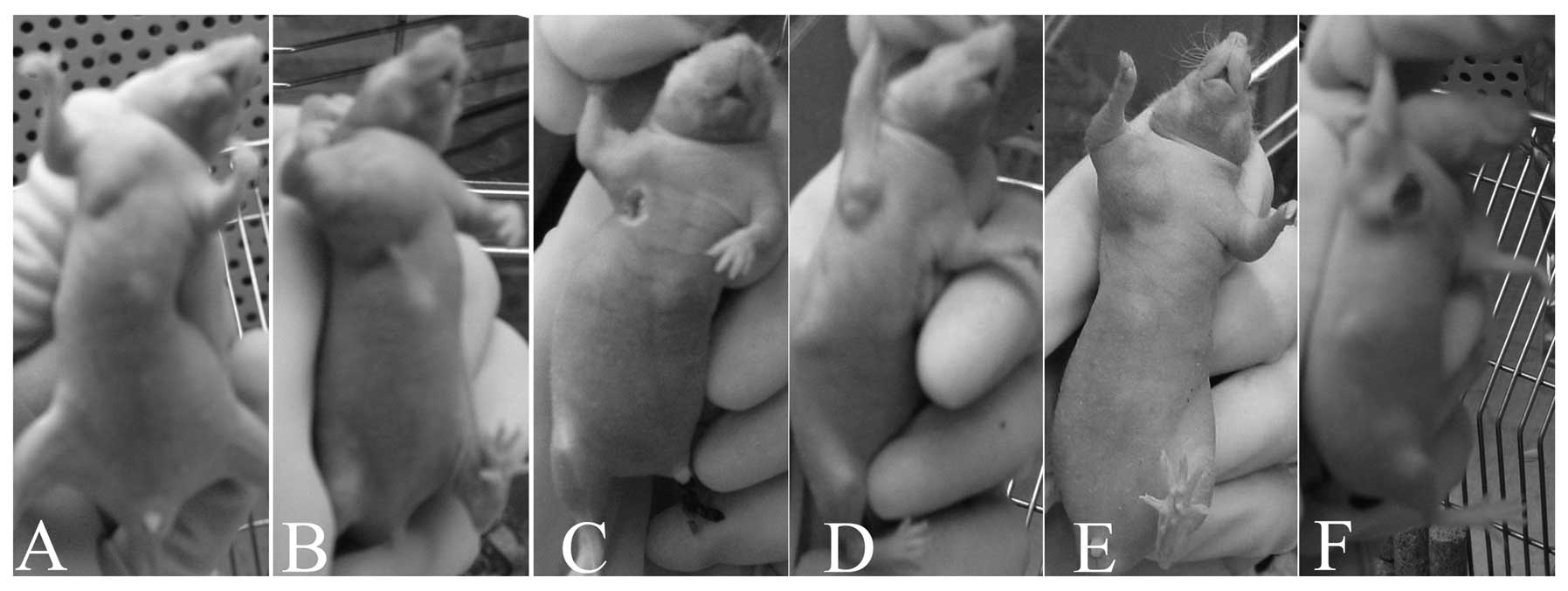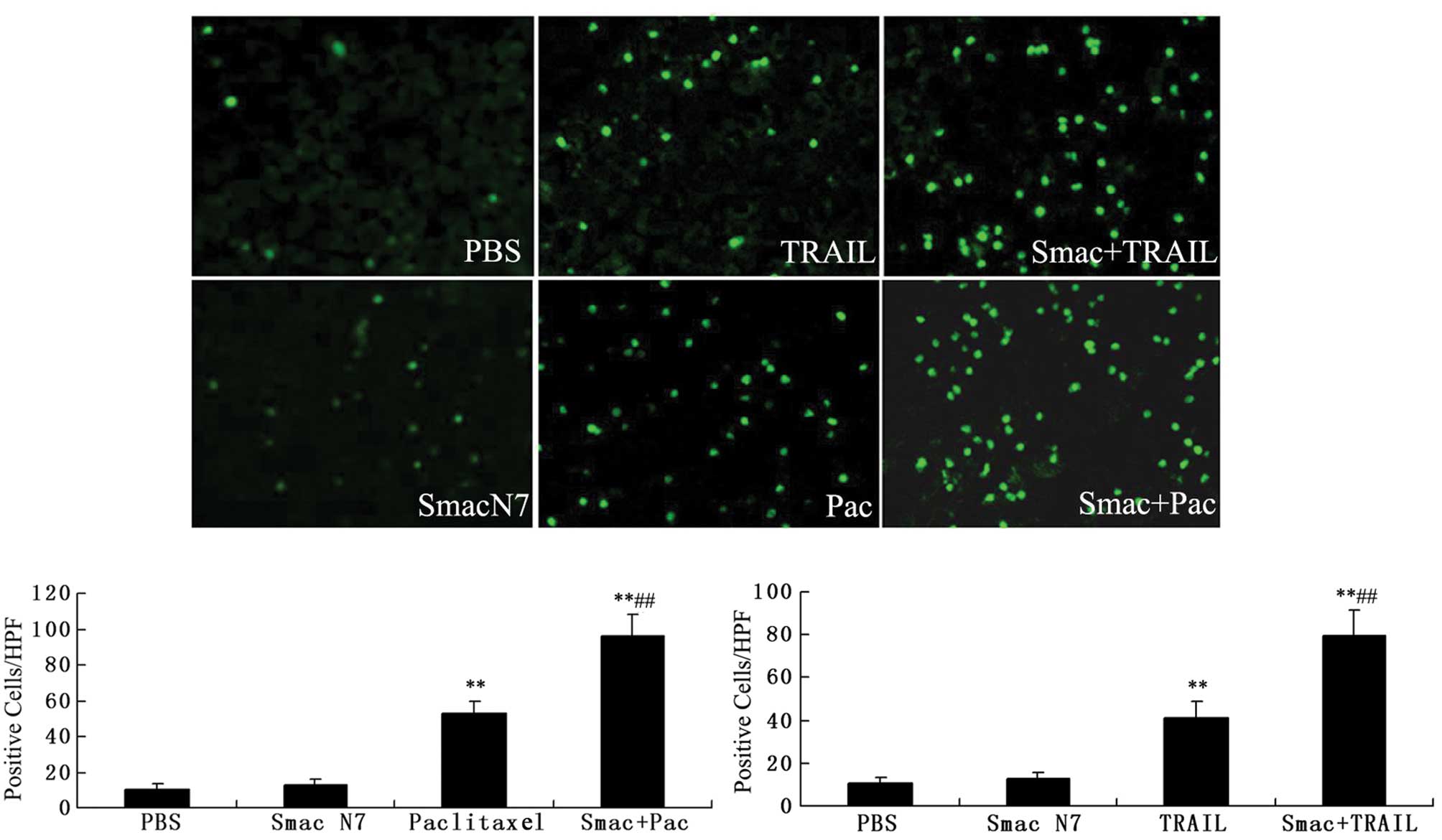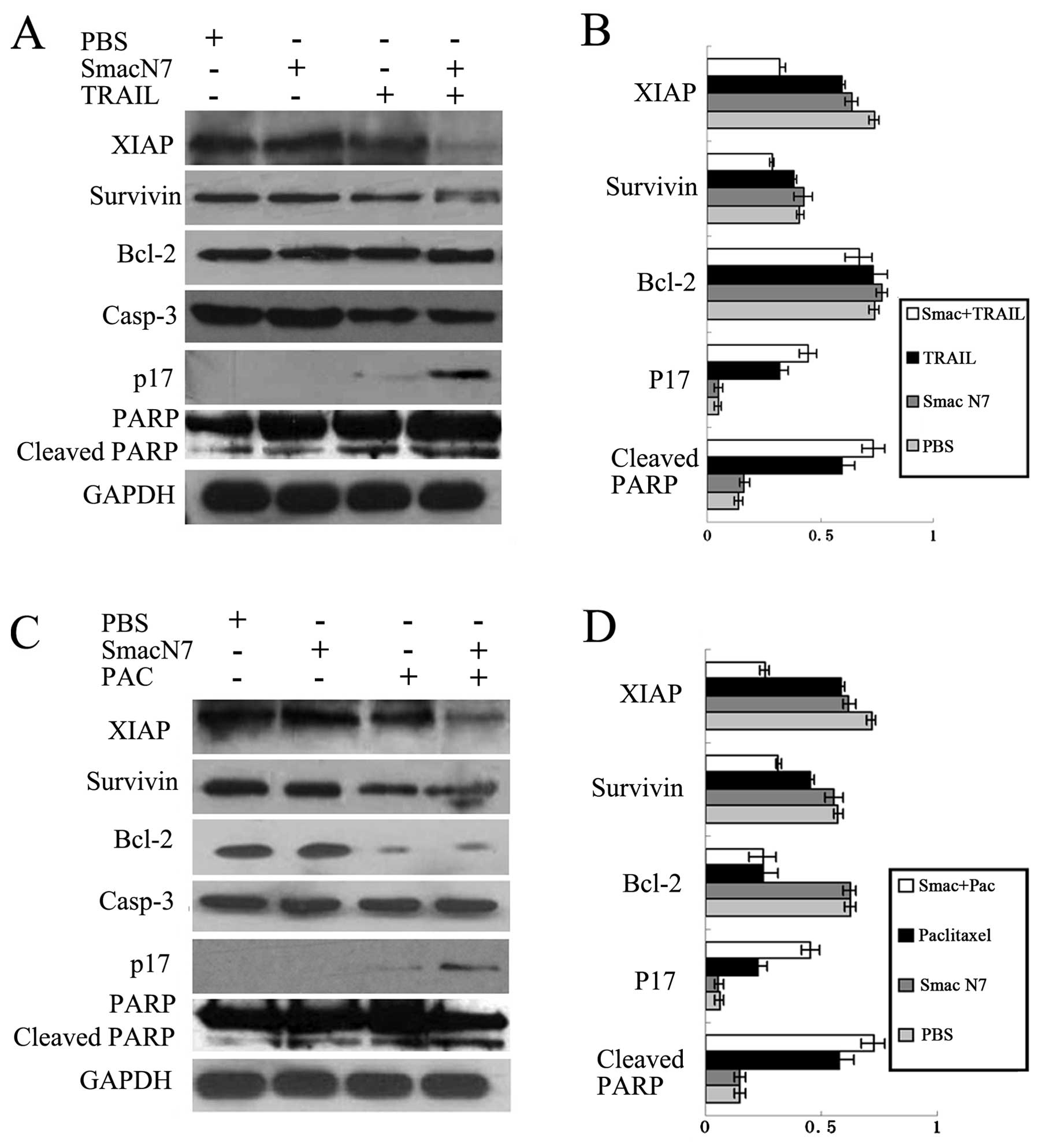|
1
|
Lee JY, Shin JY, Kim HS, et al: Effect of
combined treatment with progesterone and tamoxifen on the growth
and apoptosis of human ovarian cancer cells. Oncol Rep. 27:87–93.
2012.PubMed/NCBI
|
|
2
|
Fesik SW: Promoting apoptosis as a
strategy for cancer drug discovery. Nat Rev. 5:876–885. 2005.
View Article : Google Scholar : PubMed/NCBI
|
|
3
|
Sayers TJ: Targeting the extrinsic
apoptosis signaling pathway for cancer therapy. Cancer Immunol
Immunother. 60:1173–1180. 2011. View Article : Google Scholar : PubMed/NCBI
|
|
4
|
Qiu W, Liu H, Sebastini A, Sun Q, Wang H,
Zhang L and Yu J: An apoptosis-independent role of SMAC in tumor
suppression. Oncogene. Jul 2–2012.(Epub ahead of print).
|
|
5
|
Fulda S and Vucic D: Targeting IAP
proteins for therapeutic intervention in cancer. Nat Rev Drug
Discov. 11:109–124. 2012. View
Article : Google Scholar : PubMed/NCBI
|
|
6
|
De Almagro MC and Vucic D: The inhibitor
of apoptosis (IAP) proteins are critical regulators of signaling
pathways and targets for anti-cancer therapy. Exp Oncol.
34:200–211. 2012.PubMed/NCBI
|
|
7
|
Chai J, Du C, Wu JW, Kyin S, Wang X and
Shi Y: Structural and biochemical basis of apoptotic activation by
Smac/DIABLO. Nature. 406:855–862. 2000. View Article : Google Scholar : PubMed/NCBI
|
|
8
|
Du C, Fang M, Li Y, Li L and Wang X: Smac,
a mitochondrial protein that promotes cytochrome c-dependent
caspase activation by eliminating IAP inhibition. Cell. 102:33–42.
2000. View Article : Google Scholar : PubMed/NCBI
|
|
9
|
Liu Z, Sun C, Olejniczak ET, et al:
Structural basis for binding of Smac/DIABLO to the XIAP BIR3
domain. Nature. 408:1004–1008. 2000. View
Article : Google Scholar : PubMed/NCBI
|
|
10
|
Arnt CR, Chiorean MV, Heldebrant MP, Gores
GJ and Kaufmann SH: Synthetic Smac/DIABLO peptides enhance the
effects of chemotherapeutic agents by binding XIAP and cIAP1 in
situ. J Biol Chem. 277:44236–44243. 2002. View Article : Google Scholar : PubMed/NCBI
|
|
11
|
Giagkousiklidis S, Vogler M, Westhoff MA,
Kasperczyk H, Debatin KM and Fulda S: Sensitization for
gamma-irradiation-induced apoptosis by second mitochondria-derived
activator of caspase. Cancer Res. 65:10502–10513. 2005. View Article : Google Scholar : PubMed/NCBI
|
|
12
|
Rein DT, Volkmer AK, Volkmer J, et al:
Systemic administration of bevacizumab prolongs survival in an
in vivo model of platinum pre-treated ovarian cancer. Oncol
Lett. 3:530–534. 2012.PubMed/NCBI
|
|
13
|
Krasner CN, Poveda A, Herzog TJ, et al:
Patient-reported outcomes in relapsed ovarian cancer: Results from
a randomized Phase III study of trabectedin with pegylated
liposomal doxorubicin (PLD) versus PLD Alone. Gynecol Oncol.
127:161–167. 2012. View Article : Google Scholar
|
|
14
|
Mulier S, Claes JP, Dierieck V, et al:
Survival benefit of adding Hyperthermic IntraPEritoneal
Chemotherapy (HIPEC) at the different time-points of treatment of
ovarian cancer: review of evidence. Curr Pharm Des. 18:3793–3803.
2012. View Article : Google Scholar
|
|
15
|
Mao HL, Liu PS, Zheng JF, Zhang PH, Zhou
LG, Xin G and Liu C: Transfection of Smac/DIABLO sensitizes
drug-resistant tumor cells to TRAIL or paclitaxel-induced apoptosis
in vitro. Pharmacol Res. 56:483–492. 2007. View Article : Google Scholar : PubMed/NCBI
|
|
16
|
Oost TK, Sun C, Armstrong RC, et al:
Discovery of potent antagonists of the antiapoptotic protein XIAP
for the treatment of cancer. J Med Chem. 47:4417–4426. 2004.
View Article : Google Scholar : PubMed/NCBI
|
|
17
|
Bianchi A, Ugazzi M, Ferrante L, Lecis D,
Scavullo C, Mastrangelo E and Seneci P: Rational design, synthesis
and characterization of potent, drug-like monomeric Smac mimetics
as pro-apoptotic anticancer agents. Bioorg Med Chem Lett.
22:2204–2208. 2012. View Article : Google Scholar : PubMed/NCBI
|
|
18
|
Yang D, Zhao Y, Li AY, Wang S, Wang G and
Sun Y: Smac-mimetic compound SM-164 induces radiosensitization in
breast cancer cells through activation of caspases and induction of
apoptosis. Breast Cancer Res Treat. 133:189–199. 2012. View Article : Google Scholar : PubMed/NCBI
|
|
19
|
Voelkel-Johnson C: TRAIL-mediated
signaling in prostate, bladder and renal cancer. Nat Rev Urol.
8:417–427. 2011. View Article : Google Scholar : PubMed/NCBI
|
|
20
|
Kauntz H, Bousserouel S, Gossé F and Raul
F: The flavonolignan silibinin potentiates TRAIL-induced apoptosis
in human colon adenocarcinoma and in derived TRAIL-resistant
metastatic cells. Apoptosis. 17:797–809. 2012. View Article : Google Scholar
|
|
21
|
Fandy TE, Shankar S and Srivastava RK:
Smac/DIABLO enhances the therapeutic potential of chemotherapeutic
drugs and irradiation, and sensitizes TRAIL-resistant breast cancer
cells. Mol Cancer. 7:602008. View Article : Google Scholar
|
|
22
|
Boere IA and van der Burg ME: Review of
dose-intense platinum and/or paclitaxel containing chemotherapy in
advanced and recurrent epithelial ovarian cancer. Curr Pharm Des.
8:3741–3753. 2012. View Article : Google Scholar : PubMed/NCBI
|
|
23
|
Lindemann K, Christensen RD and Vergote I:
First-line treatment of advanced ovarian cancer with
paclitaxel/carboplatin with or without epirubicin (TEC versus TC) -
a gynecologic cancer intergroup study of the NSGO, EORTC GCG and
NCIC CTG. Ann Oncol. 23:2613–2619. 2012. View Article : Google Scholar : PubMed/NCBI
|
|
24
|
MacFarlane M, Merrison W, Bratton SB and
Cohen GM: Proteasome-mediated degradation of Smac during apoptosis:
XIAP promotes Smac ubiquitination in vitro. J Biol Chem.
277:36611–36616. 2002. View Article : Google Scholar : PubMed/NCBI
|
|
25
|
Ma L, Huang Y, Song Z, et al: Livin
promotes Smac/DIABLO degradation by ubiquitin-proteasome pathway.
Cell Death Differ. 13:2079–2088. 2006. View Article : Google Scholar : PubMed/NCBI
|
|
26
|
Fulda S, Wick W, Weller M and Debatin KM:
Smac agonists sensitize for Apo2L/TRAIL- or anticancer drug-induced
apoptosis and induce regression of malignant glioma in vivo.
Nat Med. 8:808–815. 2002.PubMed/NCBI
|
|
27
|
Emeagi PU, Van Lint S, Goyvaerts C, et al:
Proinflammatory characteristics of SMAC/DIABLO-induced cell death
in antitumor therapy. Cancer Res. 72:1342–1352. 2012. View Article : Google Scholar : PubMed/NCBI
|
|
28
|
Jiang G, Zhao J, Xiao X, et al: An
N-terminal Smac peptide sensitizes human prostate carcinoma cells
to methyl jasmonate-induced apoptosis. Cancer Lett. 302:37–46.
2011. View Article : Google Scholar : PubMed/NCBI
|
|
29
|
Xiao XY, Jiang GS, Wang L, Lv L and Zeng
FQ: Predominant enhancement of apoptosis induced by methyl
jasmonate in bladder cancer cells: therapeutic effect of the
Antp-conjugated Smac peptide. Anticancer Drugs. 22:853–863. 2011.
View Article : Google Scholar : PubMed/NCBI
|















